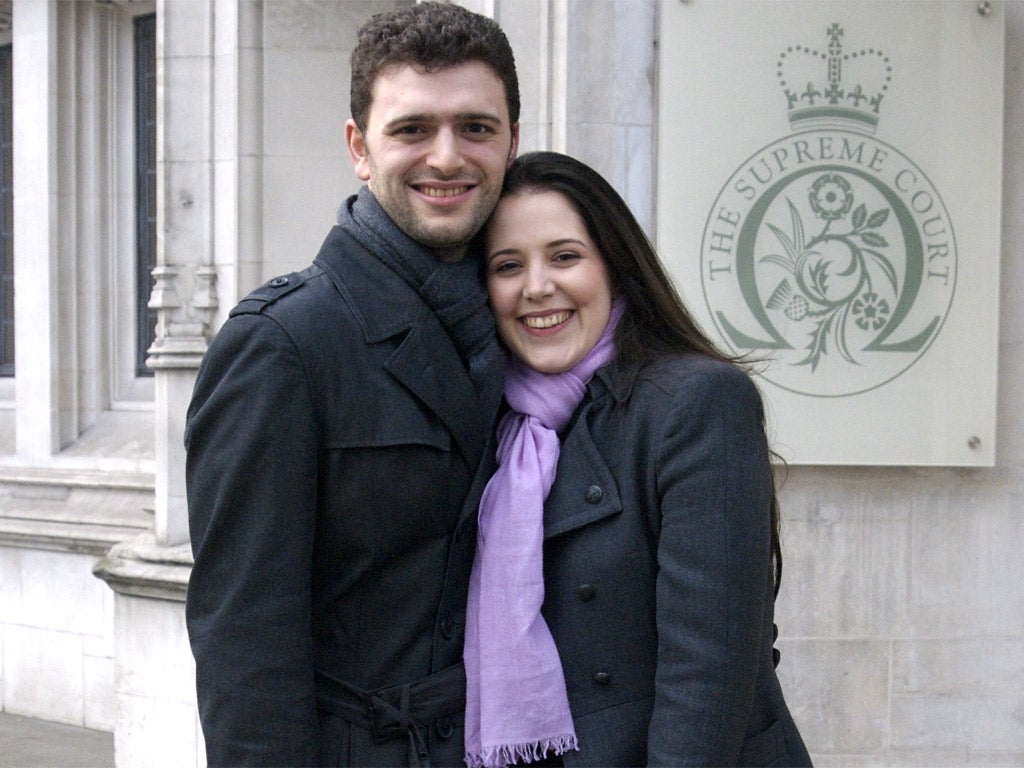UK set for first Scientology Church wedding after Supreme Court rules it a ‘place of worship’
Scientologist Louisa Hodkin had brought legal action after the registrar general refused to allow her wedding service to be held at the organisation’s London chapel

Your support helps us to tell the story
From reproductive rights to climate change to Big Tech, The Independent is on the ground when the story is developing. Whether it's investigating the financials of Elon Musk's pro-Trump PAC or producing our latest documentary, 'The A Word', which shines a light on the American women fighting for reproductive rights, we know how important it is to parse out the facts from the messaging.
At such a critical moment in US history, we need reporters on the ground. Your donation allows us to keep sending journalists to speak to both sides of the story.
The Independent is trusted by Americans across the entire political spectrum. And unlike many other quality news outlets, we choose not to lock Americans out of our reporting and analysis with paywalls. We believe quality journalism should be available to everyone, paid for by those who can afford it.
Your support makes all the difference.The UK’s first Scientology wedding is set to go ahead after the Supreme Court ruled the church’s chapels are “places of worship”.
Scientologist Louisa Hodkin had wanted to marry her fiancé Alessando Calcioli at the church’s London headquarters, and took her fight to the highest level after a High Court judge decided against her.
That decision has been overturned by five Supreme Court justices, who have been considering the case since a hearing in July and today ruled the Scientology church was a “place of meeting for religious worship”.
Scientology was developed by the science-fiction writer L. Ron Hubbard, and sets out for its followers a “precise path to understanding one’s spiritual nature”.
Today, the Supreme Court justices ruled that the definition of a religion should not be confined to those faiths which involve a “supreme deity”.
Ms Hodkin said: “I am really excited. I'm really glad we are finally being treated equally and can now get married in our church.”
She said they hoped to get married in the next few months but have yet to set a date.
Mr Calcioli added: “I think the court's definition of religion is excellent. I think it's what most people today would understand 'religion' to be. I'm ecstatic.”
Ms Hodkin’s legal action began when London Church of Scientology was rejected by the registrar general of births, deaths and marriages under the 1855 Places of Worship Registration Act.
She appealed that decision to the High Court, where Mr Justice Ouseley said he was bound by a 1970 Court of Appeal decision saying that Scientology did not involve religious worship because there was no “veneration of God or of a Supreme Being”.
Ms Hodkin argued that Scientology has evolved greatly in the past four decades, meaning the previous ruling should not be seen as binding.
The church’s website says it “most definitely” has a concept of god, as the “Supreme Being”, or “Eighth Dynamic of existence”. It says that “unlike religions with Judeo-Christian origins, the Church of Scientology has no set dogma concerning God”.
In her appeal, Ms Hodkin said services were “ones of religious worship” and likened Scientology to Buddhism and Jainism.
The Supreme Court justices agreed, and unanimously allowed Ms Hodkin's appeal against the High Court ruling.
It is a major breakthrough for the church, which first brought a similar action in the UK just 18 years after it was founded in 1952.
Communities Secretary Eric Pickles had previously welcomed Mr Justice Ouseley's 2012 ruling on the case, warning that the church might have been entitled to “tax breaks” if the decision had gone otherwise.
He said taxpayers would not want “such a controversial organisation” to get “special” treatment.
Today, local government minister Brandon Lewis said his department would be taking legal advice following the ruling.
He said: “I am very concerned about this ruling, and its implications for business rates.
“Hard-pressed taxpayers will wonder why Scientology premises should now be given tax cuts when local firms have to pay their fair share.
“We will review the Court's verdict and discuss this with our legal advisers before deciding the next steps. However, it will remain the case that premises which are not genuinely open to the public will not qualify for tax relief.”
Join our commenting forum
Join thought-provoking conversations, follow other Independent readers and see their replies
Comments